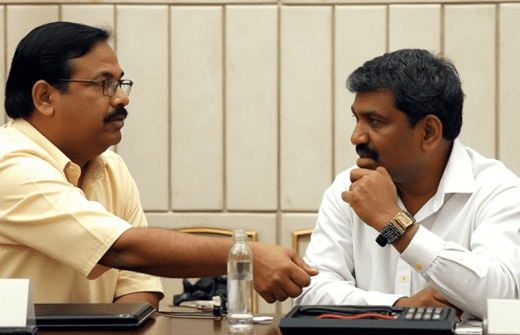Sri Lanka has made a bold political shift by electing Anura Dissanayake, the Marxist-leaning leader of the Janatha Vimukthi Peramuna (JVP) party, as the new president. Dissanayake’s platform focused heavily on anti-corruption efforts, economic reforms, and addressing the country’s deep-seated political challenges, all of which have been worsened by the ongoing financial crisis. His election marks a significant departure from the country’s traditional political leadership, which has long been dominated by the Rajapaksa family and other elite groups.
Key Issues Leading to Dissanayake’s Victory
Sri Lanka has been grappling with a severe economic crisis, the worst in its modern history. A combination of high debt, mismanagement of public funds, and the impact of the COVID-19 pandemic led to the country defaulting on its debt in 2022. The crisis saw widespread protests, fuel shortages, and inflation, prompting calls for significant political change.
Dissanayake, who has long been a vocal critic of the government’s handling of the economy, campaigned on promises to root out corruption and introduce economic policies that prioritize the welfare of the people over the interests of the elite. His message resonated with a population disillusioned by the years of political mismanagement and deepening inequality.
Anti-Corruption and Reform Promises
One of Dissanayake’s most central campaign promises was to combat the widespread corruption that has plagued Sri Lankan politics for decades. The JVP leader has vowed to create transparent systems of governance, improve accountability, and take action against those who have engaged in corrupt practices, including high-profile political figures from previous administrations.
He has also promised to address the country’s pressing economic problems by implementing policies aimed at alleviating poverty and reducing Sri Lanka’s reliance on foreign loans. His administration is expected to focus on strengthening domestic industries, improving public services, and addressing the long-standing disparities between rural and urban areas.
Global and Domestic Reactions
Dissanayake’s election has been met with a mix of optimism and caution. Supporters believe his victory could mark a turning point for Sri Lanka, offering a break from the corrupt practices of the past and ushering in a new era of transparency and people-centric governance. However, critics question whether his Marxist policies will be effective in attracting foreign investment or fostering economic growth in a country that heavily depends on international trade and financial support.
On the international stage, Dissanayake’s presidency may lead to some shifts in Sri Lanka’s foreign policy, particularly regarding its relationships with major global powers such as China and India. Both nations have played key roles in Sri Lanka’s financial recovery efforts, and how the new president navigates these relationships will be crucial to the country’s future economic stability.
Conclusion
Anura Dissanayake’s election represents a significant change in Sri Lanka’s political landscape, with his focus on anti-corruption and economic reform offering hope to many in a nation desperate for stability. However, his ability to implement these reforms and address the challenges ahead will be critical in determining whether his presidency will lead to lasting change.





